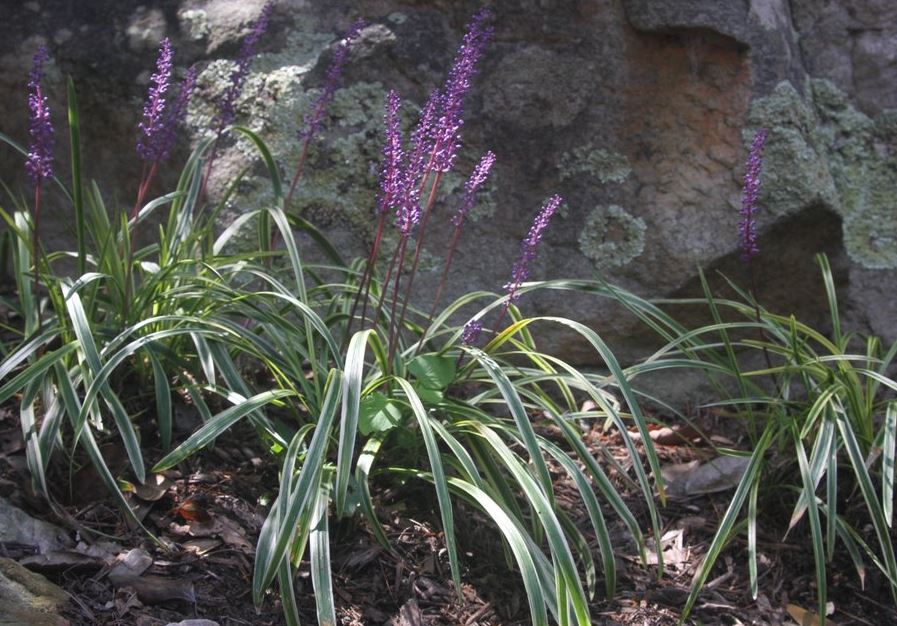
This Sept. 11, 2011 photo of Variegated Liriope taken near New Market, Va., shows how green gardens don't have to be exclusively green although the foliage dominates. (File photo: AP)
BEIJING, Aug. 14 (Xinhua) -- A protein in some plants can promote autophagic degradation under drought stress to help improve drought tolerance of the plants, Chinese scientists have found.
Dehydrin is a multi-family of proteins present in plants that is produced in response to cold and drought stress.
According to Prof. Wang Tao at the China Agricultural University, dehydrin plays a key role in autophagic degradation. Under drought stress, dehydrin facilitates the autophagic degradation of aquaporins and reduced root hydraulic conductivity, thus reducing water loss and improving drought tolerance.
Aquaporins, also called water channels, are integral proteins from a larger family of major intrinsic proteins, mainly facilitating the transport of water between cells.
In face of drought, the plants cannot move, but can reduce proteins they no longer need through autophagic ways, just like "eating themselves," Wang said.
The findings revealed a novel function of dehydrin in promoting the autophagic degradation of proteins, which extended the knowledge of the function of dehydrin, Wang said.
The research result has been published in the journal Autophagy.


